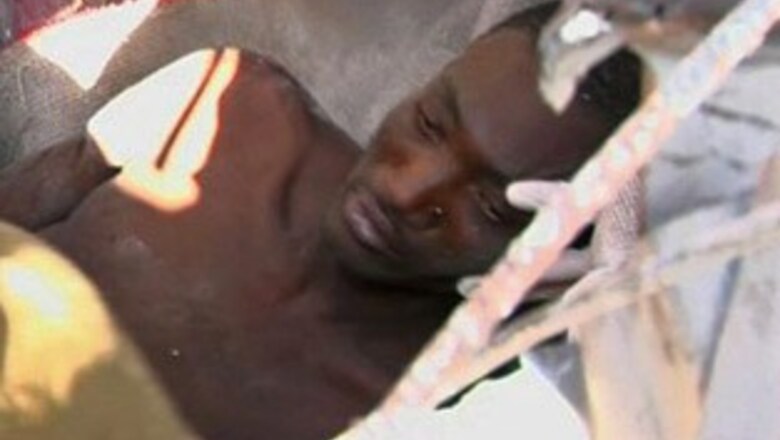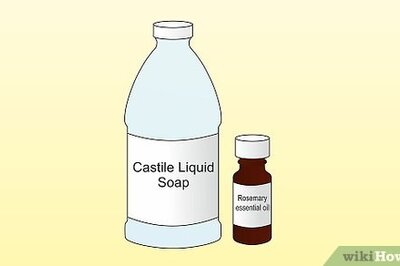
views
Port-au-Prince, Haiti: An Israeli search team pulled a severely dehydrated 21-year-old man from the rubble of his bedroom a staggering 10 days after an earthquake leveled much of the Haitian capital.
Emmannuel Buso was so ghostly pale that rescuers said his mother thought he was a corpse. However, doctors found him in relatively good shape despite his ordeal and he is expected to make a full recovery.
Buso said from his bed in an Israeli Defense Forces field hospital near Haiti's main airport that he survived by drinking his own urine and spent most of his time under the debris in a listless daze, at times dreaming of his mother and thinking that he had in fact died.
"I am here today because God wants it," Buso said.
The Israeli team is one of a number of such groups that have been searching countless destroyed buildings in the tropical heat following the 7.0-magnitude quake Jan. 12.
Elsewhere Friday, an 84-year-old woman was said by relatives to have been pulled from the wreckage of her home, according to doctors administering oxygen and intravenous fluids to her at the General Hospital. Doctors said she was in critical condition.
The European Commission says international rescue crews have rescued more than 125 people since the 7.0-magnitude earthquake struck, but successes have grown increasingly rare as time passes. Much of the focus of the quake's aid workers has shifted to helping the hundreds of thousands of newly homeless in the impoverished nation and some rescue crews have started to depart because of the time since the quake.
The Israel team has found four people alive. Their field hospital has treated more than 500 people, delivering 14 babies.
Maj. Amir Ben David, the head of the Israeli search-and-rescue team, said he has never seen anyone survive as long as Buso under such circumstances. He said the rescue is a reminder of the importance of continuing their efforts.
"This has given us a lot of hope that we can find more people," Ben David told AP. "We will keep going until the end of our mission."
Video of the rescue obtained by the AP shows rescue workers pulling the man, shirtless and covered in dust, from a crevasse in the wreckage of his family's two-story home in the Bel-Air section of the city near downtown. "Way to go," one of the rescuers yells in Hebrew.
PAGE_BREAK
Israeli searchers had been going through Port-au-Prince asking people if they knew of anyone who might be trapped. They encountered Buso's relatives, who thought he might still be alive.
They pulled away some debris, called out to him and, to everyone's surprise, he responded.
Buso, a slender student and tailor with deep-set eyes, said he had just come out of the shower when the quake hit.
"I felt the house dancing around me," he said from his bed, covered by a reflective heat blanket in the hospital field tent. "I didn't know if I was up or down."
He passed out and lay in a daze, dreaming at times that he could hear his mother crying. The furniture in his room had collapsed around him in such a way that it created a small space for him amid the ruins of the house. He had no food. When he got desperately thirsty, he drank his urine.
"I was very scared," he said. "My heart was jumping."
Buso said his mother is living in a huge encampment of refugees from the quake across from the wrecked National Palace. He plans to join her there when he is released from the hospital.
Capt. Kheir Ashraf, the doctor who treated Buso, said he has no doubts about the man was buried since the quake. But he also said Buso is in remarkably good health, all things considered.
"He is in good condition and he will recover," Ashraf said. "Listen, his laboratory exams are better than mine."


















Comments
0 comment